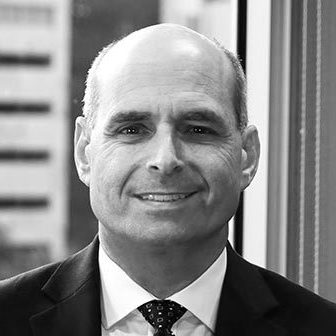Advisors need to be aware of the most common tax mistakes their clients make.
If your clients have accumulated significant wealth, they likely recognize that income and estate taxes are their largest potential expenses. Why are they considered potential expenses? Because the extremely wealthy understand that there are many ways to legitimately reduce these tax burdens if they work with proactive professionals who use a team approach. These professionals understand and have implemented the creative tax mitigation strategies available to them.
Here are the most common tax concerns we hear from our clients:
- They are paying too much income tax while they’re alive.
- They are afraid their family could lose, in some cases, more than 50% of their inherited assets due to estate taxes.
Unfortunately, it’s only after hearing about or personally experiencing the dissatisfaction of overpaying taxes that clients reach out to discuss their options. At that point, however, it may be too late, and the opportunity may be lost. After working with successful business owners and affluent families for a combined 70+ years, we’ve identified a few key issues that explain why so many have been unsuccessful in their tax mitigation and tax planning efforts.
Professionals who are team players understand their seat at the planning table. These seats are filled with lawyers, CPAs, financial advisors, philanthropic advisors, and life insurance professionals with different perspectives and ideas. This allows for the free flow of thought and a coordinated approach to implementing plans. All of the professionals have a common interest in wanting to help the client achieve their goals.
Successful entrepreneurs, business owners, and high-net-worth individuals may have outgrown the capabilities of their current advisors.
Most advisors typically serve clients with a net worth between $1 million and $5 million. Clients who fall into this category—along with their legal, tax, and financial professionals—are some of the most important drivers of our economy. They rely heavily on their team’s advice and guidance. However, the “toolbox” these advisors use may be grossly under-qualified to provide solutions for clients in the $10 million to $250 million net worth range.
These clients maintain these advisor relationships primarily because they are comfortable. Typically, they’ve worked with their advisors for many years, starting when they earned less money and needed fewer tools. They may even be childhood friends. But being comfortable could be expensive, and the price they pay for a lost opportunity could be harrowing. Fortunately, there’s an easy fix: Grow with your clients.
There is no one-size-fits-all handbook for effective tax mitigation.
Many extremely wealthy individuals obtain their services from single- or multi-family offices that have no interest in moving downstream to provide their full array of services and expertise to those who aren’t extremely wealthy. On the other hand, many attorneys, CPAs, financial advisors, insurance advisors, and wealth managers would love to move upstream to attract and work with wealthier clients. They would like to grow a practice that can keep pace with their current clients, many of whom may now soar into the ultra-high net worth space. If nothing changed, they would likely find themselves way over their heads as they try to serve this more successful and affluent group.
Successful business owners who earn more than $1 million a year in personal income or have a net worth of more than $10 million need a higher level of service for which no cookie-cutter handbook or roadmap is available. Thus, the advisors who may not be willing to adapt could leave their entrepreneur clients woefully underserved and paying too much in income, gift, estate, and capital gains taxes.
Successful individuals often make too many one-off wealth decisions.
Most successful entrepreneurs and business owners make a one-off or solitary decisions without the guidance of competent professionals who understand the ultra-high-net-worth mindset and have access to the entire brain trust of rules, techniques, and strategies necessary to reduce their client’s overall tax burdens.
These individuals are busy, and they have long-time core advisors. Some advisors may bring outside specialists to help when topics or needs arise beyond their scope. But when they do, they often find people not qualified to deliver the elite wealth and estate planning services they need.
There is no coordination among professionals.
Some professionals these clients work with may have become complacent over the years and choose to focus solely on what they do. They may not be willing to take the extra step needed to engage one or more additional professionals. But without a coordinated and collaborative team of professionals, the critical optimization of a client’s planning and tax management may be lost.
The solution is clear, and the results are proven.
As professional advisors, we know what we do best and understand where our skills begin and end. It is, and always should be, what is best for the client. Through our years of experience, we have witnessed and found that the most successful and well-known advisors to the affluent are the ones who consistently embrace a collaborative approach. They have learned that by carefully assembling the right team of internal and external professionals, they are more likely to uncover the most viable tax mitigation and strategic planning opportunities for these extremely wealthy individuals and families. Once these methodically developed options are created, educated decisions can be made, and, together with the client, implementation, and execution can take place.
How about a second opinion?
A second opinion from our team may be just what the doctor ordered. We aim to enhance the services and relationships our clients have forged over the years. When our team has a seat at the planning table, our creatively conservative approach allows us to introduce new ideas with a fresh perspective. We are not burdened by the past.
Without a differing view, new ideas are hard to come by. We specialize in offering new ideas for individuals who may be looking at a problem from the same old perspective.
About the Author

Marc L Lowell
After graduating from The University of Florida with a degree in Finance, Marc entered the financial services industry and began the two-year process of becoming both a Chartered Life Underwriter and Chartered Financial Consultant.
